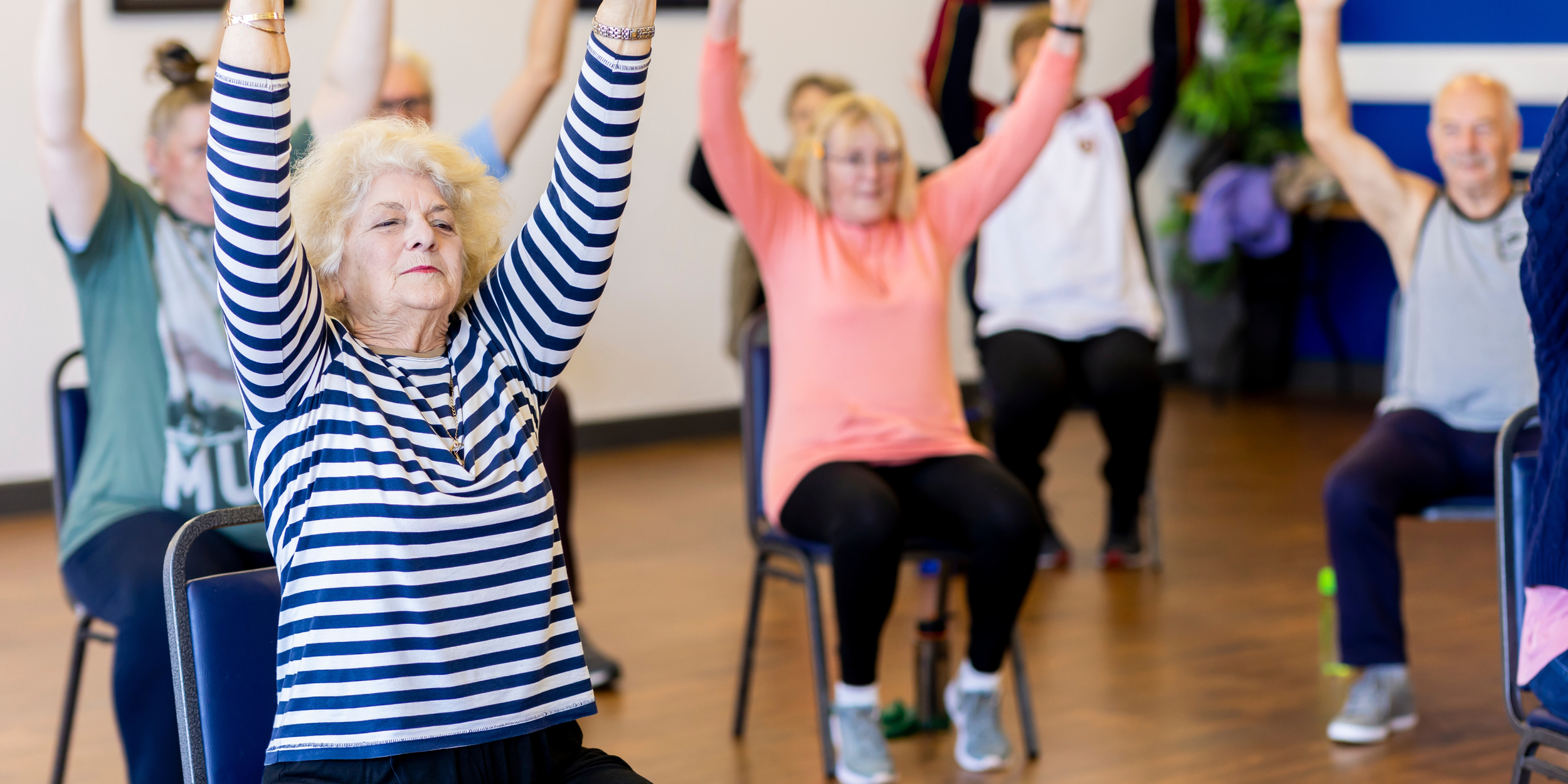The Benefits of Exercise for Seniors : Boost Your Immunity and Stay Healthy
Exercise is an essential part of staying healthy, especially for seniors. Not only does exercise help to keep the body strong and fit, but it can also boost immunity and provide many other health benefits.
For seniors, regular physical activity can improve balance and coordination, reduce the risk of chronic diseases such as diabetes and heart disease, improve sleep quality, reduce stress levels, and enhance mental sharpness and memory recall ability.
This article will discuss the benefits of exercise for seniors and offer tips on staying active safely by starting slowly with low-impact workouts and setting realistic goals.
Why Exercise is Important for Seniors
Exercise is pivotal in enhancing seniors' quality of life, fostering physical strength and mental and emotional well-being. As we age, it becomes increasingly important to maintain a regular workout routine to combat the natural decline in muscle mass, bone density, and flexibility.
Engaging in physical activity promotes a myriad of health benefits for older adults, such as:
Improved balance and coordination
Reduced risk of chronic diseases
Better sleep quality
Lower stress levels
Enhanced cognitive function
Staying active also contributes to a positive outlook and fosters social connections within the community. By prioritising exercise in their daily life, seniors can experience increased independence, vitality, and overall quality of life.
Improved Balance and Coordination
Regular physical activity offers numerous benefits for seniors, especially when it comes to enhancing their balance and coordination. As we age, it is not uncommon for our muscle strength and flexibility to decline, which can result in a greater risk of falls and injuries.
Seniors can mitigate these risks by participating in activities such as walking, light strength training, or even targeted balance exercises. These activities work to strengthen muscles and improve flexibility, both of which are essential factors for maintaining good balance and coordination.
Being active regularly promotes better overall body awareness, which contributes to improved movement efficiency and a decreased likelihood of accidents.
Reduced Risk of Chronic Diseases
Exercise plays a significant role in promoting seniors' overall health and well-being when it comes to reducing the risk of chronic diseases. The older we get, our bodies become susceptible to various health challenges.
By maintaining an active lifestyle, seniors can bolster their cardiovascular health and muscle strength, which leaves them maintaining a healthy weight. Physical activity can also help better regulate blood sugar levels, which, in turn, diminishes the risk of developing type 2 diabetes.
Better Sleep Quality
As we age, our sleep patterns often change, leading to difficulties in falling and staying asleep. Consistent physical activity helps combat this by promoting a healthy circadian rhythm and reducing stress, encouraging a night of more restful sleep.
Exercise assists seniors in achieving deeper sleep phases, which is essential for mental and physical restoration. It can also reduce the likelihood of developing chronic pain conditions, a common cause of disturbed sleep in older individuals.
Lower Stress Levels
Stress can profoundly impact our mental and physical well-being, so finding ways to lower stress levels is essential.
Regular physical exercise has been proven to boost the production of endorphins, known as the 'feel good' hormones, which help reduce stress and elevate mood. Physical activity also fosters a sense of accomplishment and promotes social interactions, which is vital for a well-rounded life.
Enhanced Cognitive Function
The benefits of regular physical activity for seniors go beyond just promoting cardiovascular health and maintaining muscle strength. Engaging in constant exercise routines can play a significant role in enhancing cognitive function as well.
As we age, it is natural for the brain's cognitive abilities, such as memory and concentration, to experience a gradual decline. However, studies have shown that seniors actively participating in physical activities have improved memory, attention and other cognitive skills.
Keeping Safe when Exercising
It is recommended that you consult a healthcare professional to identify any potential risks and limitations related to your health conditions, as this ensures the development of a tailored exercise program.
Wearing the appropriate gear, such as supportive footwear and protective equipment, is essential in minimising the risk of injury during physical activities. Maintaining proper hydration and nutrition while exercising is vital, as when you age, you are more susceptible to dehydration and fatigue. Always listen to your body and avoid pushing yourself beyond your limits, as overexertion can lead to injury and more severe health concerns.
Exercises to Boost your Immunity and Stay Healthy
Incorporating low-impact exercises into your daily routine can significantly help boost your immunity and maintain overall health. These exercises work well as they are gentle on the joints, making them suitable for seniors. Some popular low-impact exercises are:
Walking
Swimming
Dancing
Tai Chi
Yoga
Strength training exercises can also help to increase muscle strength and improve balance and can include:
Bodyweight exercises
Weight lifting
Squats
Every journey towards better health starts with small steps and gradual adjustments. No matter which physical activity you choose, it's important to begin slowly and focus on building your strength steadily.
Working hand in hand with medical professionals, such as doctors and certified instructors, is an ideal way to establish an individualised exercise program that keeps your health goals and lifestyle in perspective - enabling you to reach them safely and effectively.

